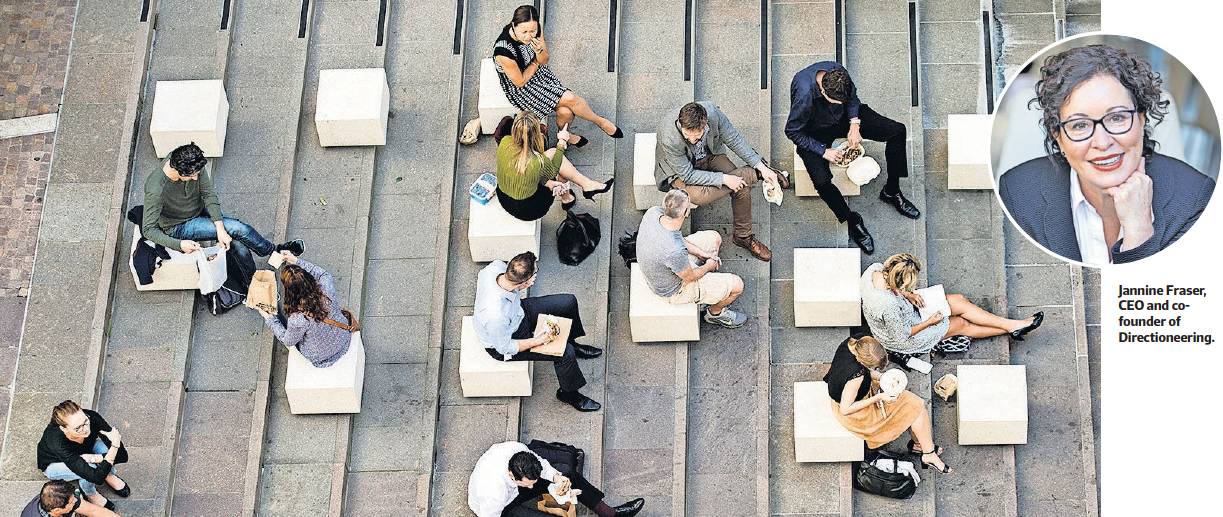Navigating the new work landscape
Two years into a global pandemic that marked a seismic shift in the world of work, organisations and their employees are still grappling with how it will reshape the job market.
Whether people return to the office remains to be seen, but one thing is clear; Australian professionals are re-evaluating traditional career models.
The Productivity Commission found in 2021 that the percentage of Australians working from home jumped from 4 to 40 per cent in two years. It also said that workers would put a premium on remote-working arrangements when looking for new jobs.
“It highlights the importance of ongoing experimentation and variety, with different firms trying out different models,” Commission chair Michael Brennan said last year.
“It emphasises continued learning, as firms and workers get better at managing remote work and finding the right balance.
“The world has undergone more workplace change in the last five years than the previous 15, says Jannine Fraser, CEO and co-founder of Australian-owned career strategy firm Directioneering.
“There’s a more human approach to the work landscape now, and COVID-19 has accelerated that,” Fraser says. “Frankly, because of remote work, we’ve inadvertently seen our colleagues in their PJs, their gym gear and in their homes with their kids.
“That’s resulted in a bit more humanity and changed how people think about what they want from work. Don’t let the remote-work debate mask the real thought process that’s happening out there. There’s a genuine opportunity for people to really consider what’s important to them in their whole life, their life balance rather than their work-life balance.”
Though Fraser believes the media narrative of a “Great Resignation” has been overstated, she does think Australians have become more articulate about their professional needs.
“What we’re seeing in the market is that people are looking for more than a sizeable pay packet,” Fraser says. “Ambition looks different these days. They also want ongoing professional development. Maybe it’s not the constant quest for the big job in the context of competing priorities.”
Employers who want the best workers need to be prepared for more nuanced conversations about what their workplace is worth, adds Fraser.
“The intensity of conversation around priority and values has, rather beautifully, amped up,” she says. “That’s a bit of a thrill, actually, because it potentially creates more of a platform for people to feel really satisfied.”
Fraser and her colleagues at Directioneering are at the coalface of this post-pandemic workplace transformation. They believe that fixating on remote work versus returning to the office obfuscates the real conversation people are having about what’s really important to them.
Founded in Australia in 2003, Directioneering works with organisations and their people to manage career transitions across an employee’s life cycle. That includes onboarding, leadership coaching, managing retrenched individuals and retirement strategy. The firm’s tailored approach places an increased focus on improving the whole employee experience, from starting a job to leaving one.
Directioneering also has a highly regarded alumni network of 5600 executives, managers and other senior professionals. The firm works primarily at the executive, management and leadership levels, helping navigate often delicate periods of transition, such as redundancies, leadership development, career guidance and retirement.
It’s a service needed more than ever; Australia has one of the highest rates of CEO turnover. Chief executives can expect to remain in the job for about five years, compared to about eight years in 2000. “Most senior executives want to ‘leave well’,” says Fraser. “We’re in a small Australian market, so how you leave is sometimes even more important than how you start.’’
Organisations benefit by preserving their reputations as sensitive employers, says Fraser.
“It really ties into an organisation’s reputation, and how they are able to attract new talent.”
Directioneering uses top diagnostic tools, digital resources, consultants with extensive experience and knowledge of the job market to support clients through a changing world.
But the industry has changed dramatically since she co-founded Directioneering nearly two decades ago. Fraser says the best career consultants have broadened their focus from helping someone land their next job to taking a more sophisticated and nuanced approach to an individual’s desired future.
Thus, Directioneering encourages face-to-face conversation, human connection, and helping people achieve a more purpose-driven career plan, says Fraser.
“We’re optimistic about this recalibration, because it connects us in a fundamentally deeper level to something that we spend a third of our waking hours doing, she says. ‘‘Work is such a massive part of our lives.
“Very rarely in our lives do we actually pause and have the opportunity to hold structured conversations around who we are, and what it is we want to do and what motivates us.
“In our work at Directioneering, we spend an extraordinary amount of energy getting to know people and where they are at in this moment of time. As a result of these conversations, we have a clear picture of the current mode of soul-searching and can see how it’s evolved since COVID.’’
